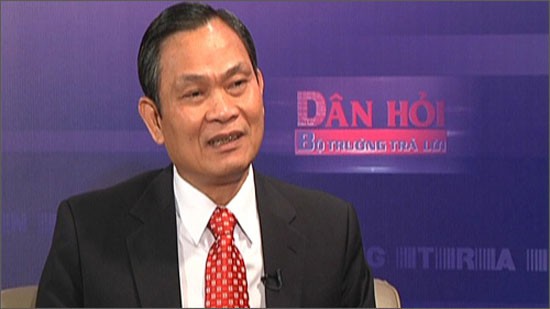(VOVworld) - In recent years, administrative procedures have been streamlined aiming to develop a democratic administration to better serve the public. The Vietnamese government has, over the years, made considerable achievements in administrative reform, including one-stop-shop mechanisms. Vietnam recently developed a set of indexes to evaluate administrative reforms in ministries, ministerial agencies, and municipal and provincial people’s committees.
Minister of Home Affairs Nguyen Thai Binh, on the a TV show “People ask, Ministers reply” last week, said that under the government’s direction, the Ministry of Home Affairs has developed indexes to evaluate administrative reforms of ministries, sectors and localities. Binh said this is an important step in administrative reform in Vietnam:“The Public Administration Reform Index 2012 reflects the government’s determination to improve the management, monitoring and evaluation of administrative reform. This is part of the Public Administration Reform Master Program for the 2011-2020 period. The indexes serve as a new management tool to evaluate comprehensively, practically and objectively the results of administrative reforms in ministries, ministerial-level agencies, provinces and cities. They are based on self-evaluation by state agencies and evaluation by external organizations including businesses and the public, who are the direct beneficiaries of public services”.

Minister of Home Affairs Nguyen Thai Binh (Photo:congly.com.vn) |
Minister Binh said that the 2012 Public Administrative Reform Index will evaluate the strength and weaknesses of administrative reforms helping state agencies and localities to adjust their reform targets and programs. With specific quantitative and qualitative criteria, state agencies and localities can compare and rank the outcomes of their administrative reform activities. Minister Binh said:“To make the indexes practical and objective, state agencies need to monitor, evaluate and mark the results of their own work to see what they have done and what the results are. In addition, to develop a democratic administration, our sociology study needs enthusiastic, active, and objective evaluation from outside organizations, enterprises and the public”.
Binh said National Assembly deputies, state servants, Party committees, social organizations, ministries and sectors, Provincial People’s Councils private individuals and enterprises will participate in evaluating the effectiveness of administrative reforms.